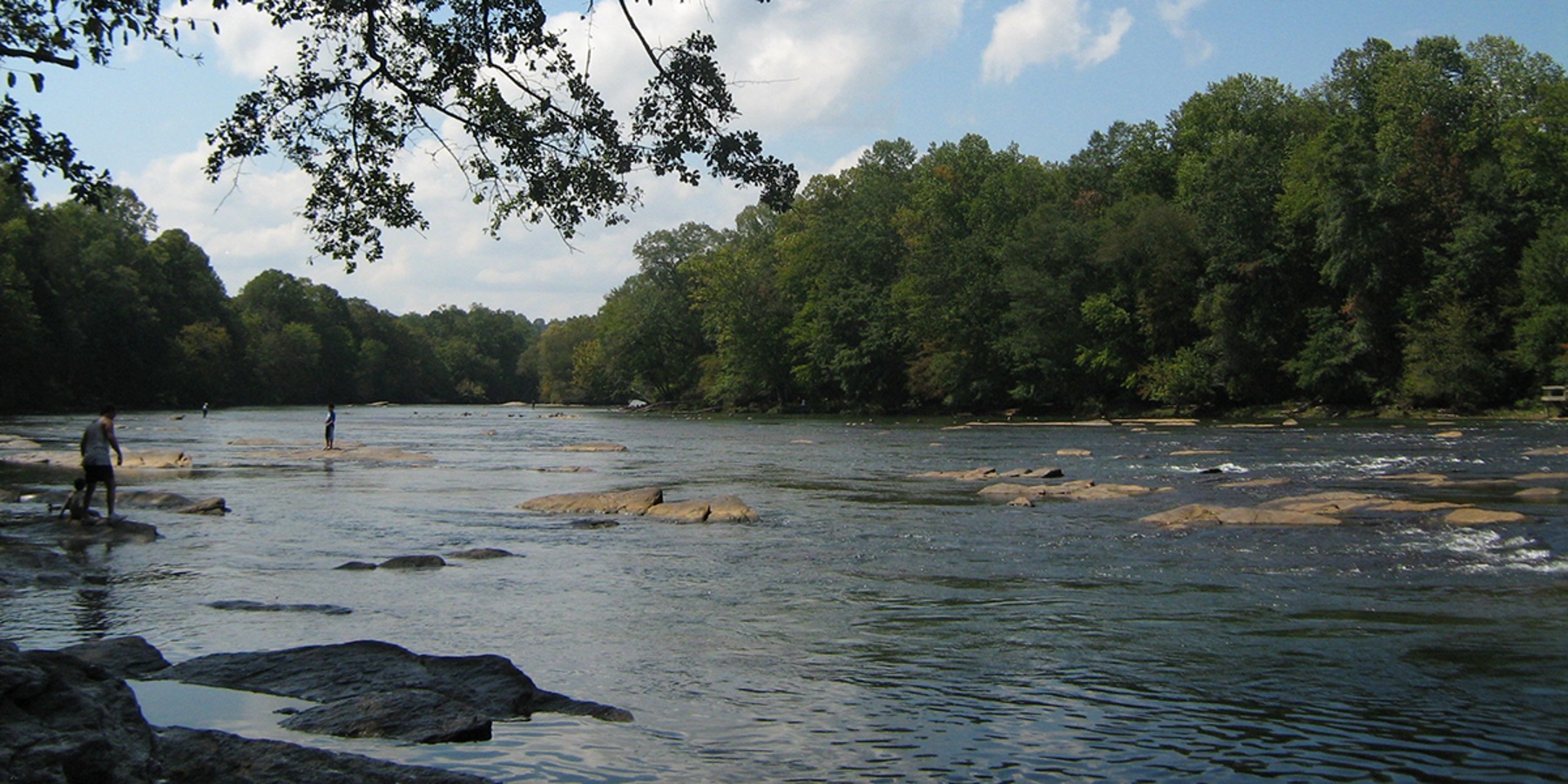Long-Running Florida-Georgia Water Fight Goes To Supreme Court Monday

In an ongoing water battle with Georgia, Florida is asking the U.S. Supreme Court to limit how much water Georgia can use from the Chattahoochee, above, and Flint rivers. The justices will hear arguments Monday.
Mike Gonzalez / Wikimedia
Florida and Georgia have been fighting over water for decades.
On Monday, the water war comes to a head, with arguments in the U.S. Supreme Court. This won’t be the last of the water battles in the Southeast – there are other active lawsuits over the water shared by Alabama, Florida and Georgia – but this is a big one.
In this case, Florida v. Georgia, Florida claims that the environment and the oyster fishery in the Apalachicola Bay have been damaged by Georgia’s water use. So it’s asking the Supreme Court to put a cap on how much water Georgia can use from the Chattahoochee and Flint rivers.
What’s At Stake
The Apalachicola Bay has had a rough go of it. In 2013, the National Oceanic and Atmospheric Administration declared a fisheries disaster there. And people are still struggling, Joseph Parrish told WABE in 2016.
“It affects the whole economy,” said Parrish, a commissioner in Florida’s Franklin County and the manager at Buddy Ward & Sons Seafood. “It affects people’s ability to buy groceries, provide for their family. You know, it’d be like a small town that relies on steel mills or relies on coal and all of a sudden there ain’t no more.”
The problems began following droughts and the BP oil spill in the Gulf of Mexico. But Florida says it’s also because people and businesses in Atlanta use too much water from the Chattahoochee River, and farmers in South Georgia use too much from the Flint. That’s why it’s asking the Supreme Court to limit how much water Georgia can take from those rivers.
What would a cap on water use mean for Atlanta?
“If Atlanta itself were capped we would have a very serious problem,” says Tom Cunningham, chief economist at the Metro Atlanta Chamber.
If a really strict water use limit was put in place here in Atlanta, he says, population growth would be limited, new businesses wouldn’t move here, property values would fall, income would go down, and wealth would drain out of the city.
“It’s a mess,” he says. “Hypothetically, under some of the more draconian proposals in the suit, you would actually have to see large numbers of people leave.”
Farmers are also worried. (The Cunningham and Cox quotes are also both from the 2016 story.)
“A cap on our water use would be a cap on our future of agricultural productivity in southwest Georgia,” says Casey Cox, a sixth-generation farmer.
The Case So Far
The fights over this water have been going on for nearly 30 years, but Florida filed this lawsuit in 2013.
Cases where one state sues another one go straight to the Supreme Court; there’s no lower court that hears it first. They’re called “originals.” The Supreme Court designated an attorney named Ralph Lancaster to be the “special master.” His job was to hear evidence in the case and to make a recommendation to the nine justices.
Last year, Lancaster recommended that the court deny Florida’s request. He said that Florida had proved that it was being harmed, but the state hadn’t proved that capping Georgia’s water use would fix the problem.
That’s because the Army Corps of Engineers manages dams on the rivers, and the Corps is not a party in this case.
“Without the ability to bind the Corps, I am not persuaded that the Court can assure Florida the relief it seeks,” Lancaster wrote.
What’s Next
The justices don’t have to take Lancaster’s recommendation. They’ll hear arguments Monday, then make their own decision this year.







